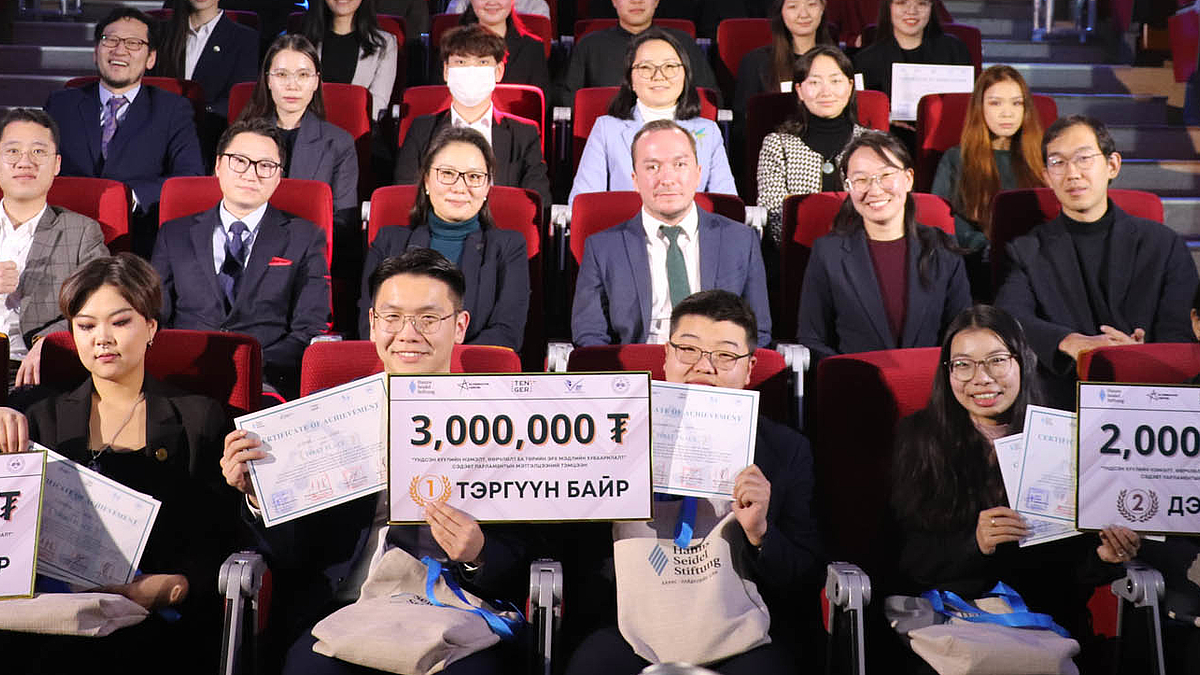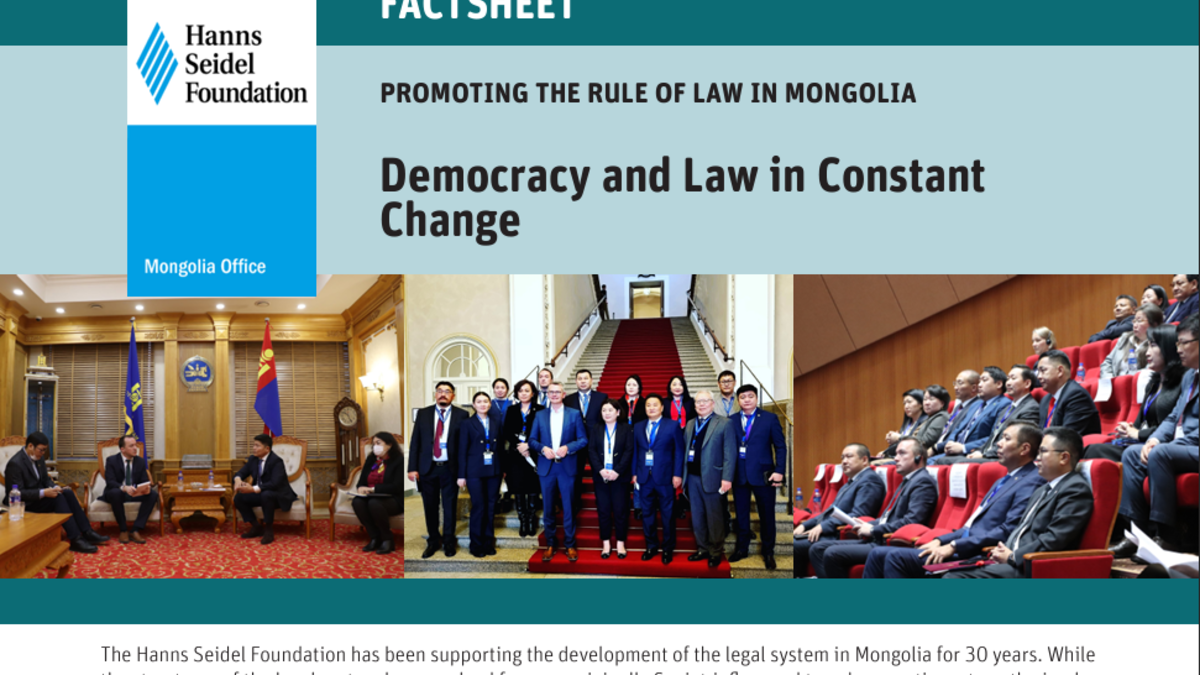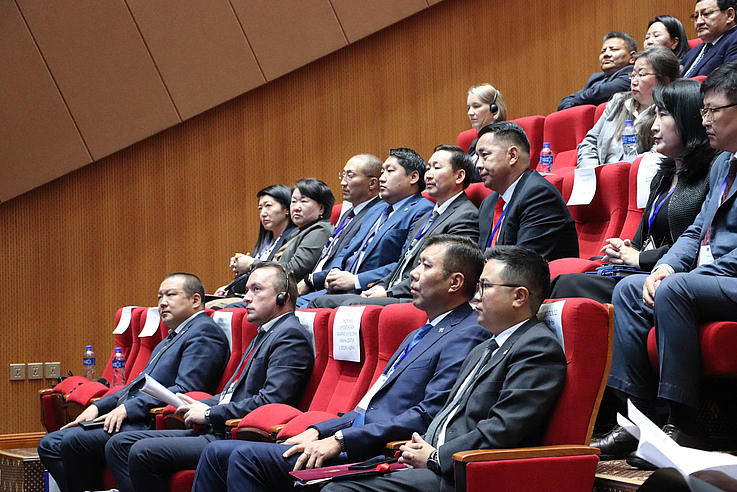Legal project
Since 1993, after Mongolia adopted its first democratic constitution in its history, the Bavarian Hanns-Seidel Foundation has been supporting the establishment of democratic structures in the country by providing advice on the development of a modern democratic legal system.
In addition to providing advice on legislative initiatives and reforms, the HSF supports various nationwide measures for judges and lawyers and conducts symposia, lectures, and work visits between Bavaria and Mongolia. One focus is the training of Mongolian lawyers in Germany, the further education of multipliers in Mongolia, among other things, through German experts, as well as the provision of expertise in the form of publications and consultations.
Whenever German legal expertise is requested by Mongolian partners, the HSF wants to act as a link to Germany and establish an exchange that Mongolia can benefit from, by developing its own sustainable legal culture and legal tradition as well as strengthening its democratic structures.
Challenges
With the fall of the Soviet Union, Mongolia faced great challenges: Although the country was not part of the Soviet Union as a so-called satellite state, it was exposed to the influence of the huge empire and the structure of the state was also based on the Soviet model. Accordingly, the transformation towards a democratic and capitalist system that began in 1990 led to major social, economic, and legal hurdles. Since Mongolia looked to the west and especially to Germany, particularly in the context of legal reforms, the Constitution that came into force in 1992 has strong parallels to the German “Grundgesetz”. Other legal developments were also based on the German law: The Code of Administrative Court Procedure of Mongolia, based on its German equivalent, the “Verwaltungsgerichtsordnung”, for the first time gave citizens the right to legally face the state on an equal footing. The then Speaker of the Parliament Z. Enkhbold called its amendment in 2016 "the biggest event since the adoption of the new democratic constitution".
Despite these positive developments, there are still great challenges: In addition to the constant evolution of law, it is important for Mongolia to develop its own legal culture and legal tradition, and also to expand the awareness of the applicable laws among citizens and state institutions. Only in this way can solutions to other challenges, such as the professionalization of administration or the fight against corruption, be effectively achieved.
Solutions
The exchange between the Hanns Seidel Foundation (HSF) and Mongolian partners on the possibilities of cooperation in the legal and administrative field began as early as 1993. Two years later an official agreement was signed between the Mongolian government and HSF on the promotion and consultancy in the field of law and the legal administration. Since then, HSF has been supporting various nationwide measures for judges and administrative officials, conducting symposiums, lectures, working visits between Bavaria and Mongolia, as well as studies, and regularly publishing manuals and legislative commentaries. The focus is always on supporting legal reforms, especially in the field of constitutional law, criminal law and administrative law. Meanwhile, HSF is also intensifying its work in other areas of law, such as commercial law and environmental law. The primary goal of the cooperation is capacity-building of Mongolian legal experts in Germany, trainings of multipliers in Mongolia by German experts, as well as the provision of expertise in the form of publications and consultations. Whenever German know-how in the legal field is requested from Mongolian partners, HSF is available as a link to Germany. Mongolia benefits from the exchange by developing its own sustainable legal culture and its legal tradition and by strengthening its democratic structures.
Effects
The entire legal field in Mongolia is today strongly influenced by Germany and the German legal system. This includes the structure of constitutional law, administrative law and criminal law, but also important actors in the state and society who have been trained in Germany. The introduction of the administrative jurisdiction is based on a close cooperation between HSF, the Ministry of Justice and Home Affairs and the National University of Mongolia. As part of the training of judges and lawyers, programs were offered to over 3,600 criminal and administrative judges and to over 10,000 administrative officials. Some publications developed by HSF with Mongolian partners on the basis of German expertise are now considered basic literature in the field of comparative research. Today, the know-how is passed on to state actors in the legal field (prosecutors, public defenders and researchers), as well as increasingly in the executive field (police officers, forensic experts and environmental officials). Ultimately, however, the most important target group remains the general public – because it is the basis for democracy and the rule of law in Mongolia, as well as in Germany and worldwide.



